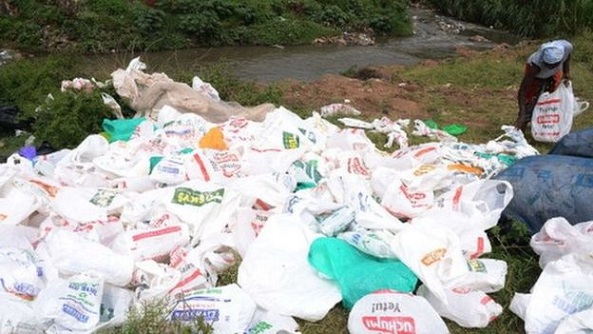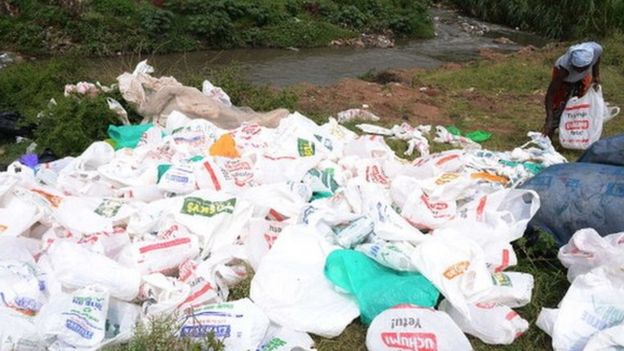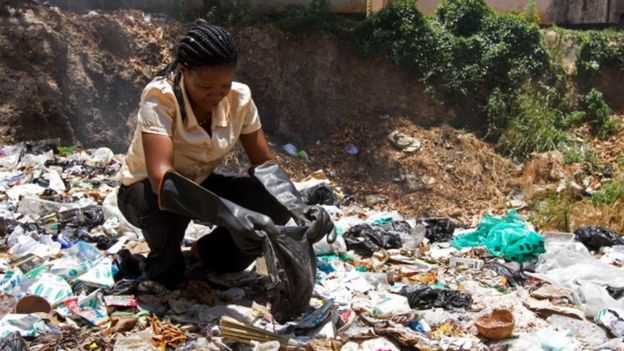
A ban on plastic carrier bags has come into force in Kenya, which means that from Monday anyone found selling, manufacturing or carrying them could face fines of up to $38,000 or prison sentences of up to four years.
The government says the ban will help protect the environment.
But manufacturers of the bags have argued that 80,000 jobs could be lost.
A court on Friday rejected a challenge to the ban. Kenyans are estimated to use 24 million bags a month.
A number of other African countries have outlawed plastic carrier bags, including South Africa, Rwanda and Eritrea.

This is the third attempt in the past 10 years to ban plastic bags in Kenya.
The BBC’s Anne Soy in Nairobi says that so far many Kenyans appear to support the ban.
But there is also some uncertainty about how consumers will adjust to life without polythene bags, which are usually given free-of-charge at retail outlets.
Travellers coming into Kenya with duty-free plastic shop bags will be required to leave them at the airport under the new rules, the National Environmental and Management Authority has said.

The government gave a six-month window for adjustment which expired on Sunday night.
Manufacturers who use polythene to wrap products are exempted from the ban.
Most traders have been caught off-guard despite the phased introduction of the ban, The Standard reported.
A spot check carried out by the newspaper revealed that most small-scale traders in Nairobi’s Muthurwa market had not obtained alternative packaging materials.
In its ruling last week the High Court dismissed a case filed by two plastic bags importers urging it to drop the ban. The court ruled that environmental concerns were more important than commercial interests.
Research in Europe has shown that a paper bag must be used three times to compensate for the larger amount of carbon used in manufacturing and transporting it.
Likewise a plastic “bag for life” must be used four times, and a cotton bag must be used 131 times.
THE ROTTEN FISH: CAN OF WORMS OPENED OF APC & TINUBU'S GOVERNMENT OVER NIGERIA'S ECONOMIC DOWNTURN
WATCH THE CRITICAL ANALYSIS AND KNOW THE RESPONSIBLE PARTIES TO BLAME FOR NIGERIA'S ECONOMIC CHALLENGES, WHILE CITIZENS ENDURE SEVERE HARDSHIPS.Watch this episode of ISSUES IN THE NEWS on 9News Nigeria featuring Peter Obi's Special Adviser, Dr Katch Ononuju, 9News Nigeria Publisher, Obinna Ejianya and Tinubu Support Group Leader, McHezekiah Eherechi
The economic crisis and hardship in Nigeria are parts of the discussion.
Watch, leave your comments, and share to create more awareness on this issue.
#9NewsNigeria #Nigeria #issuesInTheNews #politics #tinubu THE ROTTEN FISH: CAN OF WORMS OPENED ...
DON'T FORGET TO SUBSCRIBE AND LEAVE YOUR COMMENTS FOR SUBSEQUENT UPDATES
#9newsnigeria #economia #economy #nigeria #government @9newsng
www.9newsng.com
